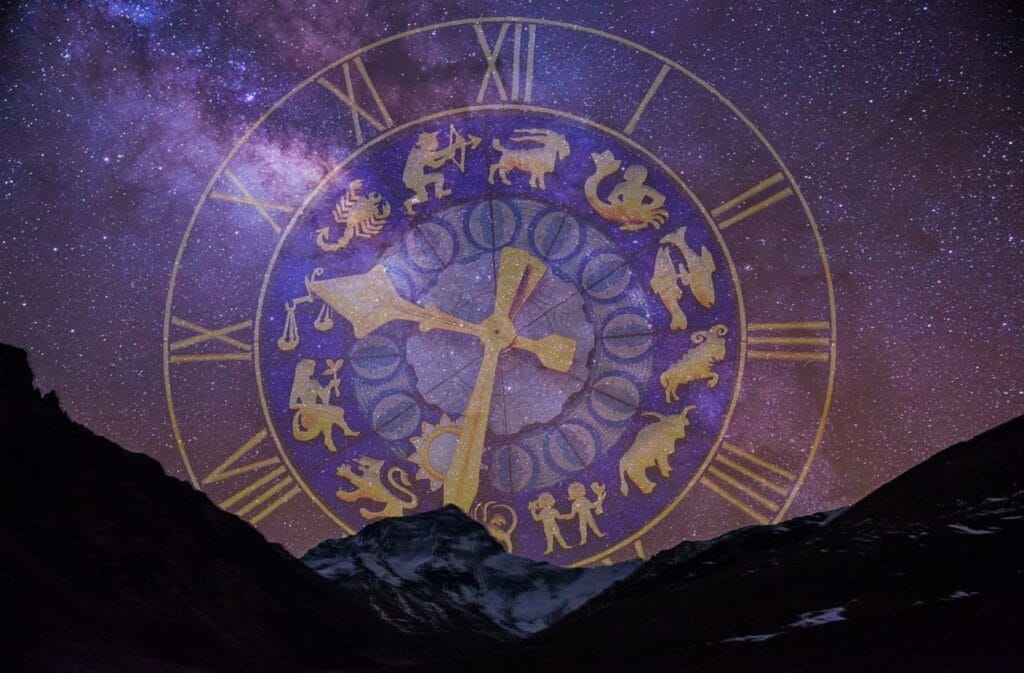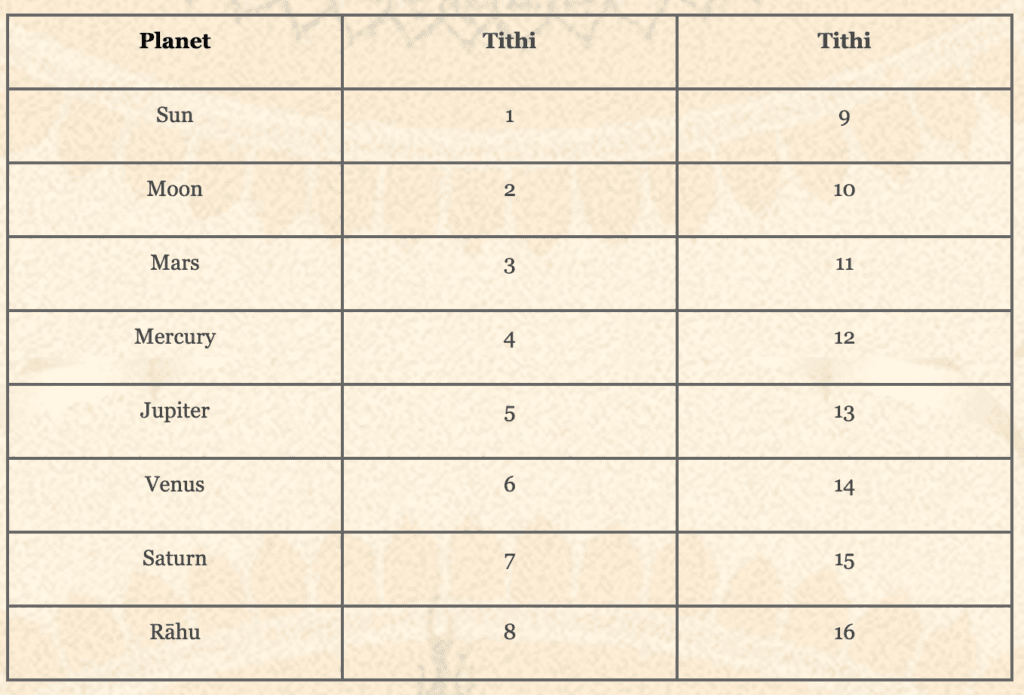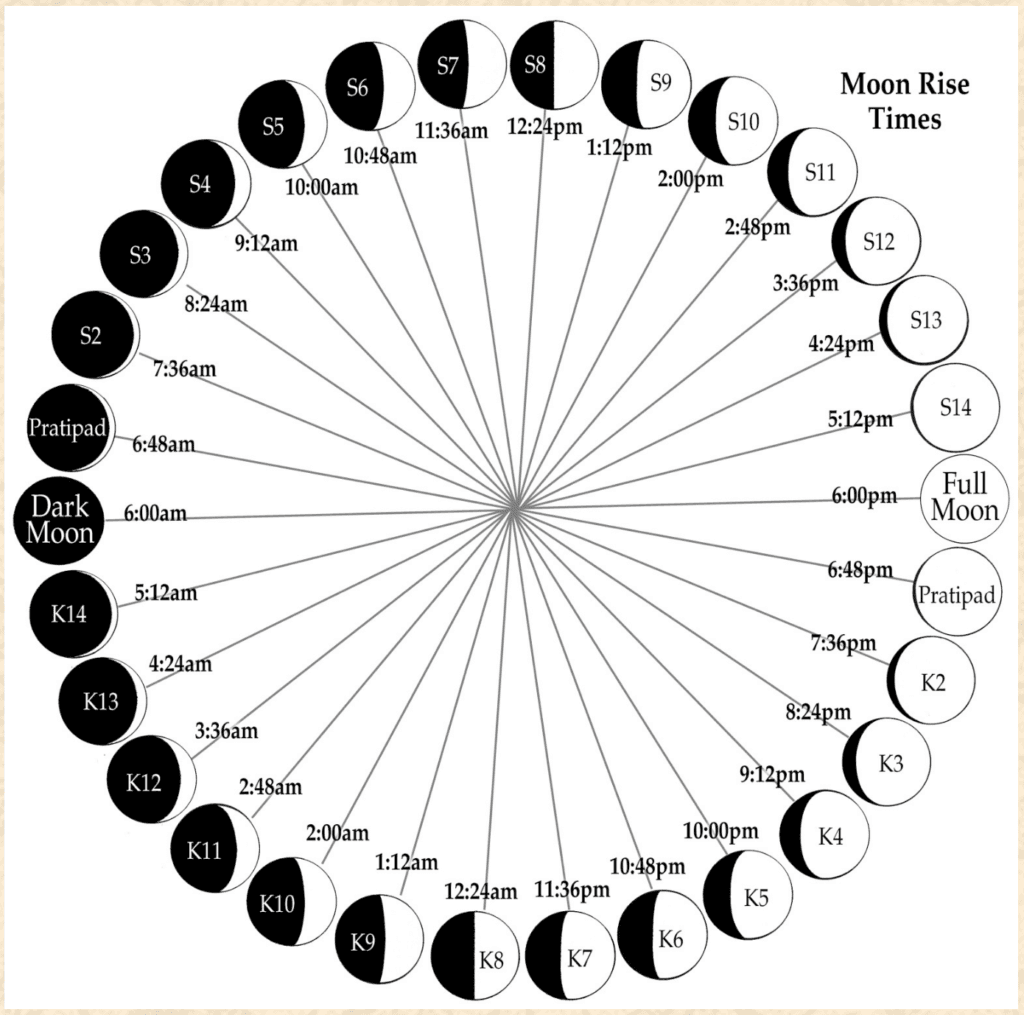
What is a Tithi?
May 21, 2025
What is a Tithi?
A Tithi is a lunar day in the Hindu calendar. It is based on the movement of the Moon in relation to the Sun. One Tithi ends when the Moon moves 12 degrees away from the Sun. There are a total of 30 Tithis in a lunar month.
Each month is divided into two parts:
- Shukla Paksha – the waxing phase of the Moon (when the Moon is growing)
- Krishna Paksha – the waning phase of the Moon (when the Moon is shrinking)
So, in both phases, there are 15 Tithis each.
Names of the 15 Tithis
Here are the names of the Tithis in order:
- Pratipada
- Dwitiya
- Tritiya
- Chaturthi
- Panchami
- Shashthi
- Saptami
- Ashtami
- Navami
- Dashami
- Ekadashi
- Dwadashi
- Trayodashi
- Chaturdashi
- Purnima (Full Moon) or Amavasya (New Moon)

How is a Tithi Different from a Normal Day?
A Tithi is not the same as a day on the clock. A normal day is 24 hours long. But a Tithi can be between 19 to 26 hours, depending on the speed of the Moon. That is why the Tithi at sunrise is taken as the Tithi for that day, even if it changes later in the day.
Why is Tithi Important?
In the Hindu calendar, Tithis are used for:
- Festivals
- Fasting days (Vrats)
- Planning good times (Muhurta) for marriages, starting a business, or religious events
- Birthdays – based on the Tithi a person was born on
Tithi and the Moon’s Phases
- The waxing phase (Shukla Paksha) starts from Amavasya (New Moon) and ends at Purnima (Full Moon).
- The waning phase (Krishna Paksha) starts from Purnima and ends at the next Amavasya.
Ruling Planets of Tithis
Each Tithi is ruled by a planet. Here’s the list:
| Tithi Number | Tithi Name | Ruling Planet |
| 1, 9 | Pratipada, Navami | Sun |
| 2, 10 | Dwitiya, Dashami | Moon |
| 3, 11 | Tritiya, Ekadashi | Mars |
| 4, 12 | Chaturthi, Dwadashi | Mercury |
| 5, 13 | Panchami, Trayodashi | Jupiter |
| 6, 14 | Shashthi, Chaturdashi | Venus |
| 7, 15 | Saptami, Purnima/Amavasya | Saturn |
| 8, 16 | Ashtami, 1st of next Paksha | Rahu |
These planets affect the mood, energy, and results of the day.

Tithi and the Elements
Tithis are also grouped into five types, based on elements:
| Group Name | Element | Tithis |
| Nanda | Fire | 1, 6, 11 |
| Bhadra | Earth | 2, 7, 12 |
| Jaya | Space | 3, 8, 13 |
| Rikta | Water | 4, 9, 14 |
| Purna | Air | 5, 10, 15 (Full/New Moon) |
Each type shows a certain quality or feeling:
- Nanda – happiness, good for celebration
- Bhadra – steady, good for buying or building
- Jaya – victory, good for challenges
- Rikta – empty, not good for starting anything new
- Purna – full, good for completing work or prayers

Using Tithi in Muhurta (Choosing a Good Time)
When choosing a Muhurta (lucky time), Tithi helps decide whether:
- People will support your work
- The work will be successful
- Your mind will be calm or restless

Tithi is related to the mind’s state (water element), while Nakshatra shows what kind of experience the mind will go through.

Good and Bad Tithi-Day Combinations
Some Tithis are very good when they fall on certain days. For example:
- Pratipada (1st), Shashthi (6th), or Dwadashi (12th) on Friday is very auspicious.
But some combinations are not good (called Dagdha, Visha, or Hutashan days). These are inauspicious, and it’s better to avoid starting new things on them.
Fasting and Tithis
People fast on certain Tithis to get spiritual benefits:
- Ekadashi (11th) – Removes anger and brings peace
- Ashtami (8th) – Prevents cheating and builds trust
- Purnima (Full Moon) – Helps in seeking truth and removing Saturn’s negative effect

Tithi and Relationships (in Birth Chart)
In Vedic astrology, Tithi also tells about a person’s desire, emotions, and relationships. Tithi is ruled by Venus (love and desire). If the planet ruling your birth Tithi is strong in your horoscope, then relationships are usually smooth. If it is weak, then there may be troubles.
Also, where planets like Rahu, Venus, or certain Arudhas (like A9, A10, A11) are placed will show from where relationships start or where issues may come.
Deities Associated with Each Tithi
Each Tithi also has a deity. These deities give more meaning and can help decide what rituals or prayers to do.
For example:
- Pratipada – Brahma (creation)
- Tritiya – Vishnu (preservation)
- Chaturthi – Yama (discipline, control)
- Ekadashi – Rudra (destruction of bad qualities)
- Purnima/Amavasya – Vishvadevas or Pitrs (ancestors)

